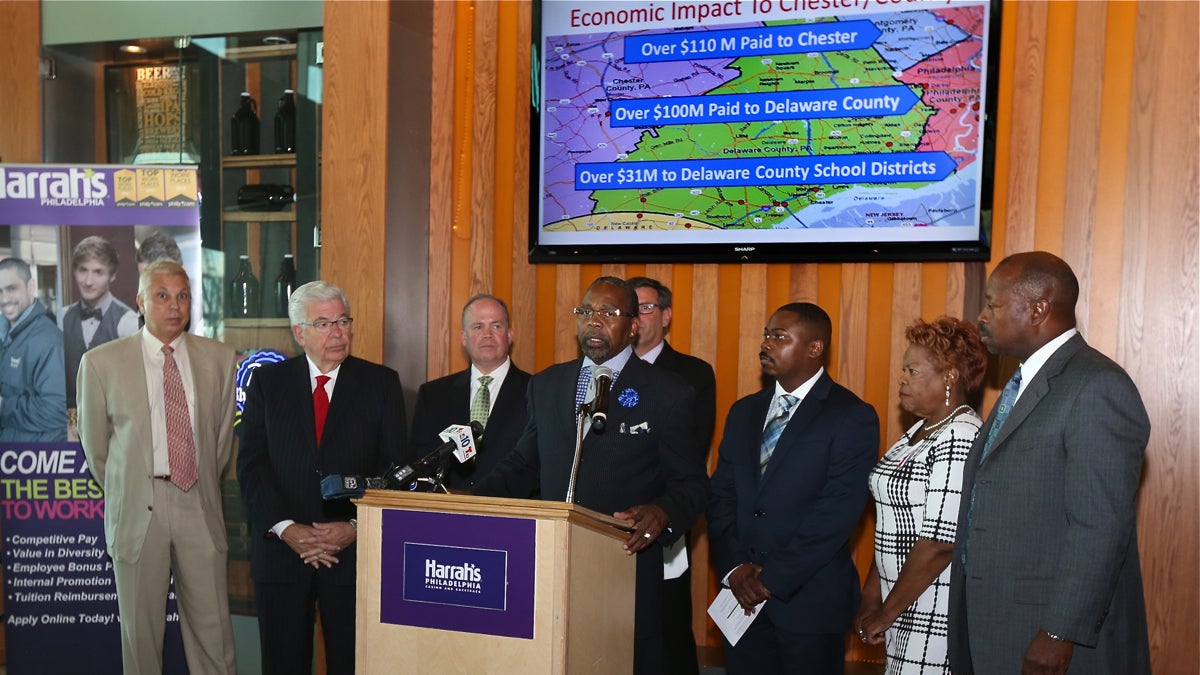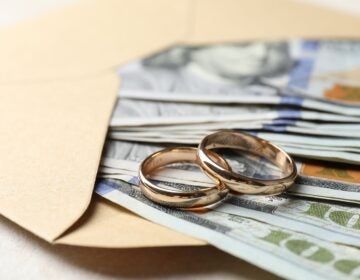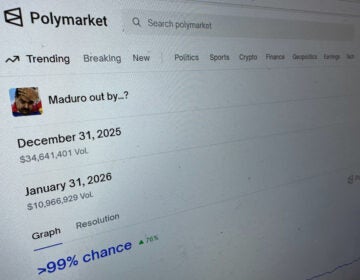DelCo officials rail against bill to put gambling in restaurants, bars to fund Pa.’s coffers

Chester Mayor Thaddeus Kirkland speaks against a proposal that would allow video game gambling at bars. The mayor and other opponents of the measure spoke during a press conference at Harrah's casino in Chester. (Harrah's Philadelphia)
Lawmakers in Harrisburg are thinking about rolling the dice on expanding gambling opportunities to create more revenue to help plug Pennsylvania’s budget deficit.
Legislation up for debate includes legalizing fantasy sports, codifying existing online gambling and paving the way for video gaming terminals — arcadelike slot or poker machines at bars and rest stops. That last option has drawn particular fire from casino lobbyists and politicians in Delaware County.
The goal of the amendment, said state Rep. Mark Mustio, R-Allegheny, is to add hundreds of millions of dollars to state coffers without raising taxes.
“Currently there is 40,000 untaxed, illegal machines in [Pennsylvania],” he said during a press conference at the capitol. “We are trying to get rid of those by enacting this legislation, and then introducing the ability for locals bars, taverns, restaurants and clubs to have up to five video gaming terminals.”
By bringing those illegal machines into the fold, the state would eventually generate hundreds of millions of dollars, according to Mustio, who proposed the revenues be split between the location of the terminals, the operator, and the state.
Local governments that benefit from hosting casinos say the measure would shift funds from local to state coffers.
“Delaware County will be negatively impacted by an expansion of gaming, by adding video gaming terminals and also by adding internet gaming,” said Delaware County Councilman John McBlain.
By state law, casino’s pay a portion of their slot and table gaming cash to local municipalities, under what’s called a local share agreement.
Harrah’s Casino in Chester pays out two percent of its revenue from slot machines — which are the bulk of its gaming earnings — to Delaware County and Chester City each.
According to figures from the Pennsylvania Gaming Control Board, the county has received $53.8 million and Chester $94.7 million since 2007. Both also receive additional percentages of gaming revenue as a part Harrah’s agreement to lease the land for the casino.
Philadelphia schools have received $28.8 million while the city has netted $19.1 from SugarHouse Casino.
The terminals could cut slot revenues by about 20 percent, according to a report generated on behalf of the state’s casinos.
As budget negotiations continue, the particulars of new gambling regulations are subject to change. For now, HB 649 enjoys bipartisan support
“We’re open to gaming expansion, as one part of a revenue package,” said Jeff Sheridan, spokesman for Gov. Tom Wolf. He stressed that it alone would not be enough to shore up the state’s budget.
WHYY is your source for fact-based, in-depth journalism and information. As a nonprofit organization, we rely on financial support from readers like you. Please give today.




